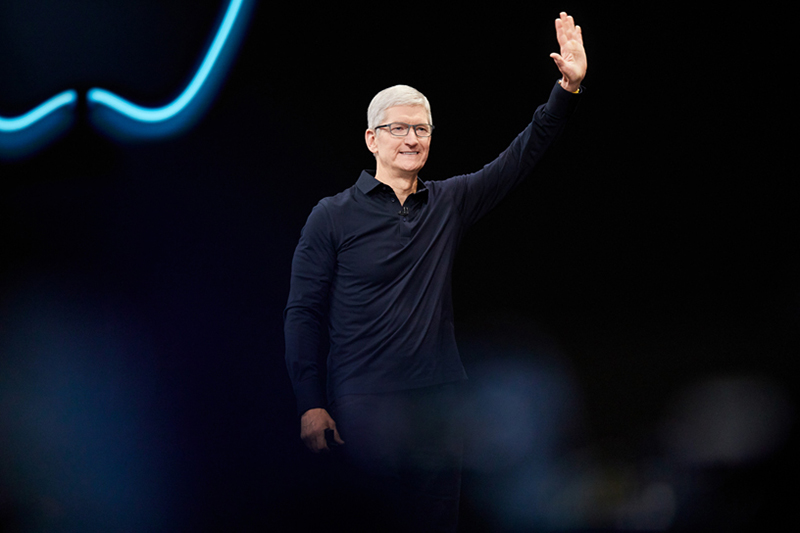


The company is in no hurry, though, and its strategy with other media projects has been to edge them from failure to, if not blowout success, a strong enough position that you’ll sign up if the thing is preinstalled on your phone - Apple’s true commercial advantage in the media business. The service is currently experiencing modest success with a show that would be at home on broadcast TV, the sweetly funny “Ted Lasso.” (The branding can be a little conspicuous: There are as many as three Apple devices in some “Ted Lasso” scenes, and Siri makes a cameo.) That has mostly ruled out the sort of prestige drama that defined other breakout streaming services. So now “Scraper” is heading back to the market, and could still see daylight with a different producer.Īpple TV+, which started a year ago, has struggled to find its feet in a climate in which its top creative executives, Jamie Erlicht and Zack Van Amburg, appear to be constantly trying to guess what Mr. Cook felt about the coverage at the time.)Īpple, a company whose corporate culture is firmly controlled by the same small group of men who have run it for two decades, and whose value to consumers is focused on protecting their privacy, doesn’t quite see the world the same way. of Apple isn’t within bounds - then who would be?” (An Apple spokesman didn’t answer any questions about how Mr. “There is a broader good in knowing more about the private lives of the people who run this society. “It’s something that gave me pause and that I thought about, but I would do it the same way again,” he said. Cook to lead the company in 2011, it made no mention of his sexual orientation, but Gawker’s Ryan Tate introduced him as “The Most Powerful Gay Man in America.” (Other coverage had used euphemistic expressions like “intensely private” lifelong bachelor.) When Apple named Mr. Cook also has a personal grievance with the site, which in 2008 responded to a glowing article about the low-profile executive by floating the rumor that he was gay. Steve Jobs pleaded to get it back, police close to the company raided an editor’s house, and Gawker reveled in the chaos.īut Mr. The most famous incident came in 2010, when Gizmodo got its hands on a prototype of the iPhone 4. The site represented a particular irritant to Apple. Cook was surprised to learn that his company was making a show about Gawker. Creative executives aren’t alone in tiptoeing around anything that could dent the brand.Īnd you can understand why Mr. The logic of these rules is obvious: Apple TV+ is a minor sideline in a sprawling, deliberate, top-down company that uses a pristine brand to sell some 200 million iPhones a year. Night Shyamalan to keep crucifixes off the walls in his thriller “Servant.”Īnd then, there are the phones: A person involved in another recent Apple show recalled instructions to avoid a scene in which a phone would be damaged. Dre biopic because there was too much violence and nudity, and that the company had asked the director M. The Wall Street Journal also reported in 2018 that Mr. Cue had instructed creators to “avoid portraying China in a poor light.”) (BuzzFeed News first reported last year that Mr.
GAWKER APPLE SOFTWARE
And when it was reported in 2016 that the tech mogul Peter Thiel had secretly financed the lawsuit that brought down the company, it seemed the final truth Gawker had exposed was the power and determination of Silicon Valley to bring the media to heel.Įddy Cue, Apple’s senior vice president for internet software and services, who has been at the company since 1989, has told partners that “the two things we will never do are hard-core nudity and China,” one creative figure who has worked with Apple told me. It ignited intense debates over privacy, with its gleeful publishing of sex tapes and explicit photographs. It became a target of Gamergate in 2014, when the backlash to calls for diversity in gaming offered an early glimpse of what would become the new online right wing. And its ethos put the company, which published the tech blog Gizmodo and the pioneering feminist blog Jezebel, among others, into America’s new culture wars. It crossed lines that needed to be crossed - pushing stories about sexually abusive figures like Harvey Weinstein and Bill Cosby - and ones that didn’t, exposing the personal lives and frailties of minor figures. Gawker was always a canary in the cultural coal mine, mostly because of its mission of heading farther along the coal face than others wanted or dared to.


 0 kommentar(er)
0 kommentar(er)
